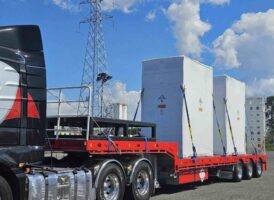The bid to kick fossil gas out of Australian homes, electrify everything and power it with solar is off and running in New South Wales, with the launch of an $8 million pilot to decarbonise three local communities across the state.
The trial, which has received the immediate endorsement of Rewiring Australia’s Saul Griffith, will focus on finding the best ways to upgrade existing homes with all-electric and energy efficient appliances and technologies.
The significance of this particular approach – there have been a few pilots, including in the ACT, to make new-build homes gas free and solar-electric powered – is that it is about de-gassing and “rewiring” existing homes, which is a more complex task.
NSW energy minister Matt Kean, whose government goes to the polls at the end of next month, says the pilot will run a competitive process to partner with the private sector to test cost effective ways to upgrade to zero emissions homes in an urban, regional and remote community.
The idea is to approach to task with the understanding that no two homes are the same, from stand-alone houses to apartment blocks, and to trial the cheapest suite of zero emissions technologies across a cross-section of communities.
“This trial will focus on finding the best ways to save households money on their energy bills by installing zero emissions appliances and technologies,” Kean said on Friday
“This is all about using the latest technology to give people more control of their energy bills, while contributing to NSW’s target to reduce emissions by 70% by 2035.”
Griffith, whose extensive research demonstrates the economic and climate benefits of shifting Australian households to more efficient electric living, says the new policy is a strong step forward.
According to Rewiring Australia’s research, households that install solar and a battery and then replace gas fired heating, water, cooktops and petrol/diesel cars for efficient electric alternatives can slash thousands of dollars from their annual energy bills.
Rewiring Australia has demonstrated that electrification with commercially-available technologies is the fastest, cheapest way to combat inflation and decarbonise the economy.
According to its modelling, it will be cost effective for households to entirely replace conventional gas and other outdated appliances with EV, solar and efficient alternatives by the mid-2020s.
“By 2025 this will be a slam-dunk for all families,” Griffith said in a press conference in Wollongong on Friday, following the policy announcement.
So, giving it a shot now supported by some “relatively modest government co-funding” makes good sense – and will help guide consumers and industry in the near future.
Actually, Griffith argues we shouldn’t be thinking of electrification as a cost, at all, considering the potential it has to save Australian households, en masse, and thereby boost the national economy.
“Over time, we’re going to save so much money – mostly because we’ll be driving our cars using our rooftop solar. When you get to that point, it will cost you one or two cents to drive a kilometre instead of 20 to 25 cents on petrol or diesel.
“That really will drive huge savings in Australian households. And actually, for the whole nation, you could expect this to be saving $20, $30 or $40 billion a year as a nation in our households.
“So a small commitment now from the state governments and federal governments can actually release a huge saving for the nation down the road,” Griffith said.
“The Australian people have the highest uptake of rooftop solar in the world, and they know that a small push from the government will allow them to go further by installing the batteries, electric cooktops, heaters and water systems that free them of fossil fuel emissions and bills.
“Committing to this trial allows governments to foster the technology breakthroughs we know the world will need to dramatically reduce emissions by 2030.”
The pilot program will launch in the second half of 2023 and will be voluntary for households in the selected communities to join.










